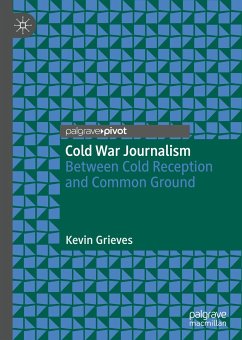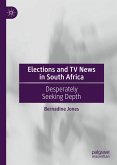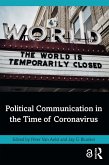This book explores Cold War journalism and journalists as threat, representing 'enemy' systems and ideologies. The book also examines Cold War aspirations of forging transnational journalistic connections across the Iron Curtain as well as finding common journalistic ground within the East and West blocs. The book shines a critical light on overly idealistic visions for that journalistic common ground, drawing on primary archival source material to investigate journalists and reporting work, journalistic content and journalistic venues during the Cold War era. This is not a book about traditional war correspondence - rather, it is about the rhetorical battles and the ideological fronts that have shaped and continue to shape our world. By fully understanding how journalism and journalists have intersected with hostile barriers and divisions in the past, we can have a more nuanced understanding of the current global media environment.
Dieser Download kann aus rechtlichen Gründen nur mit Rechnungsadresse in A, B, BG, CY, CZ, D, DK, EW, E, FIN, F, GR, HR, H, IRL, I, LT, L, LR, M, NL, PL, P, R, S, SLO, SK ausgeliefert werden.









